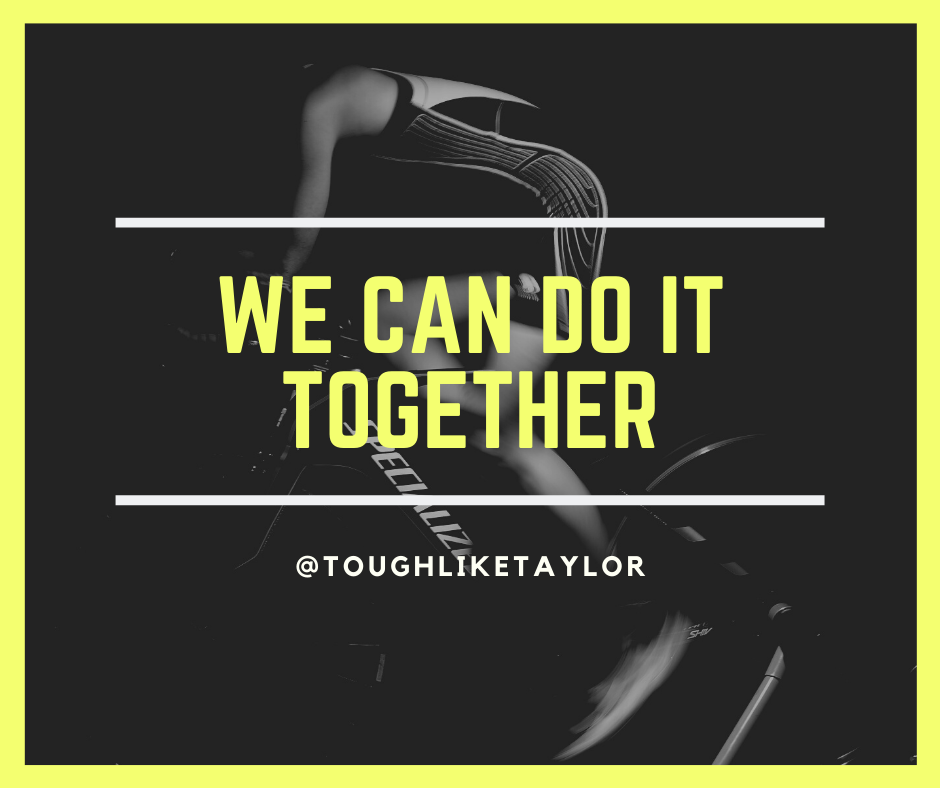A Seat At The Table
/Two years ago, I received the call from our Genetic Counselor with what they believed was an explanation for our daughter’s developmental delays. It was PURA Syndrome, a rare genetic condition associated with intellectual and physical disability. At the time, there were about 170 individuals diagnosed worldwide. Today, there are approximately 350. It has been a wild ride since we received that phone call two years ago and we have learned so much.
Martin Luther King Jr. once said, “Make a career of humanity. Commit yourself to the noble struggle for equal rights. You will make a greater person of yourself, a greater nation of your country, and a finer world to live in.” During the Civil Rights Movement, Dr. King and so many others fought to have a seat at the table….to be viewed as equal.
Despite the many social advances we have made in the last several decades, “difference” is often still associated with “defect,” and as a result there is a tendency to underappreciate, underestimate, and devalue the lives of those with disabilities. Having a daughter with a rare genetic condition gives me unique insight into how those with disabilities are viewed and treated. Discrimination exists both overtly and covertly.
I have experienced this bias personally. I was terrified when I realized Taylor had significant developmental delays. Society tells you to hope for and pray for a “healthy child,” and of course, what parent doesn’t want this? But, I have come to despise this statement and the cultural belief it instills that life will not be good unless we have healthy children….and worse, that an “unhealthy” child is not as good as a “healthy” child. This statement is reminiscent of a time when difference was most certainly associated with defect. We are not that far removed historically from a time when the disabled were removed from families and institutionalized in the Western World, and in many countries, children with disabilities are abandoned to this day.
I don’t want to disregard the struggles that so many individuals and families impacted by disability face (financial, emotional, physical, etc), but what I am learning is the real issues are not with those who have disabilities or with their families. The real issue lies in our society….with you….with many people who read this blog and do not have a disability or know someone with a disability. The major problem lies in systemic attitudes and views of the disabled and in systemic barriers to proper healthcare and services.
The real problem is the fact that healthcare, therapy, and adaptive equipment are so hard to obtain. The real issue is that some people still believe using the word “retarted” is appropriate. The real issue is that many schools, places of employment, and public establishments are not accessible, and I’m not just talking about wheelchair accessibility….. accessibility can include braille, recording devices, interpreters, service dogs, communication devices, and any number of other accommodations. The real issue is that when you park in a handicap parking spot or use the handicap bathroom stall, you potentially limit another person from moving freely in their environment or even using the lou.
The real issue is that parents, family members, and friends don’t bother to learn how best to communicate with someone differently abled and therefore deny that individual a seat at the table. For example, did you know that 90% of the deaf population has two hearing parents and 88% of those parents do not know sign language.* My daughter often knows exactly what she wants and needs. She has a plethora of ways to communicate and most of them are not verbal. Nonverbal does NOT mean she has nothing to say.
The real issue lies with the fact that many individuals with various disabilities struggle to gain employment and opportunities for independent living….and programming for adults is extremely limited.
I continue to learn throughout this journey and am more keenly aware of these attitudes and societal norms that disregard the lives of so many individuals. I believe most of it is implicit bias, the attitudes and stereotypes that affect our understanding, actions, and decisions in an unconscious manner (although sometimes it is more conscious). I don’t pretend to have all of the right answers. I may not always use the right words and have probably fallen victim countless times to the same ableism I have described above.
But I am trying my best to advocate for a better world for my daughter, a beautiful, precious, and unique individual. She is valued, loved, and oh-so-perfect just the way she is. Although some individuals with disabilities and some families prefer to remain relatively private, we choose to speak openly and publicly about our experiences. As Dr. Martin Luther King said, “Our lives begin to end the day we become silent about things that matter.” We want to advocate –to fight for equal rights, to raise awareness, to answer questions and be a part of solutions, and to share with others so they might learn alongside us.
@ToughLikeTaylor
*Hadadian, A., & Rose, S. (1991). An investigation of parents attitudes and the communication skills of their deaf child. American Annals of the Deaf, 136, 273-276. Henggeler, S.W., Watson, S.M., Whelan, J.P., & Malone, C.M. (1990). The adaptation of hearing parents of hearing-impaired youths.














Last Fall, Taylor and I kind of did a thing….. Britt Gooding, owner of an online and mobile boutique called CLT Boutique, posted a model call in a local Facebook group for moms, I couldn’t resist. Something prompted me to send a response along with a little photo of Taylor. Not only can you find the cutest graphic t-shirts, onesies, coffee mugs, hats, accessories, and more at the CLT Boutique, but Britt emphasized she was looking for models with diverse looks and ages.